Exeter Riddle 11 in Spanish / en Español
MEGANCAVELL
Date: Fri 23 May 2025Dr. José Antonio Alonso Navarro holds a PhD in English Philology from the Coruña University (Spain) and a BA in English Philology from the Complutense University of Madrid (Spain). Currently, Alonso Navarro is a Full Professor of History of the English Language at the National University of Asuncion (Paraguay). His main interest revolves around the translation of Middle English texts into Spanish. Needless to say, he is also very enthusiastic about Old English riddles.
El Dr. José Antonio Alonso Navarro es Doctor en Filología Inglesa por la Universidad de La Coruña (España) y Licenciado en Filología Inglesa por la Universidad Complutense de Madrid (España). Actualmente, Alonso Navarro es Catedrático de Historia de la Lengua Inglesa en la Universidad Nacional de Asunción (Paraguay). Su principal interés gira en torno a la traducción de textos del inglés medio al español. No hace falta decir que también está muy entusiasmado con los acertijos en inglés antiguo.
Hrægl is min hasofag, hyrste beorhte,
reade ond scire on reafe minum.
Ic dysge dwelle ond dole hwette
unrædsiþas, oþrum styre
5 nyttre fore. Ic þæs nowiht wat
þæt heo swa gemædde, mode bestolene,
dæde gedwolene, deoraþ mine
won wisan gehwam. Wa him þæs þeawes,
siþþan heah bringað horda deorast,
10 gif hi unrædes ær ne geswicaþ.
Mi atuendo es del color de la ceniza, mis adornos, sobre mi túnica, brillantes, rojos y resplandecientes. Engaño a los necios e incito a los bobos a que se ocupen de empresas desatinadas. Desconozco la razón por la que ellos, carentes de toda razón y erróneas sus acciones, encomian lo sombrío de mi actuar ante todos. Pobre de ellos por tal hábito, pues me encumbran entre sus bienes más amados en lugar de apartarse primero de toda imprudencia.
Tags: anglo saxon exeter book riddles solutions riddle 11 José Antonio Alonso Navarro

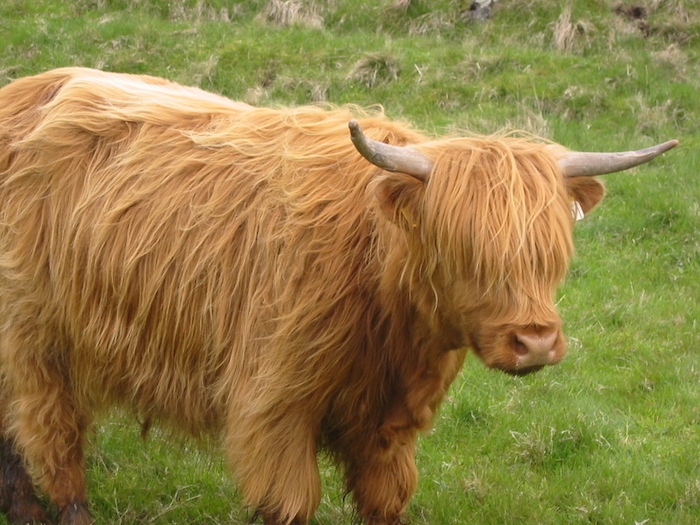
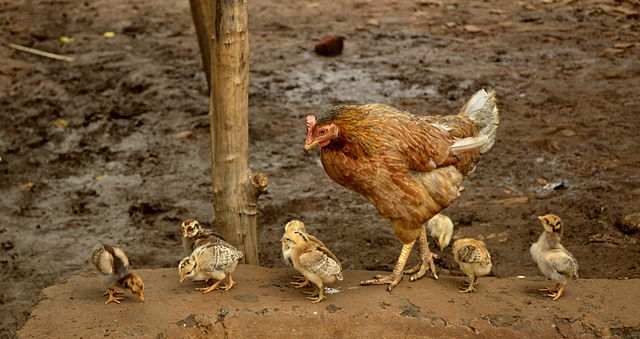
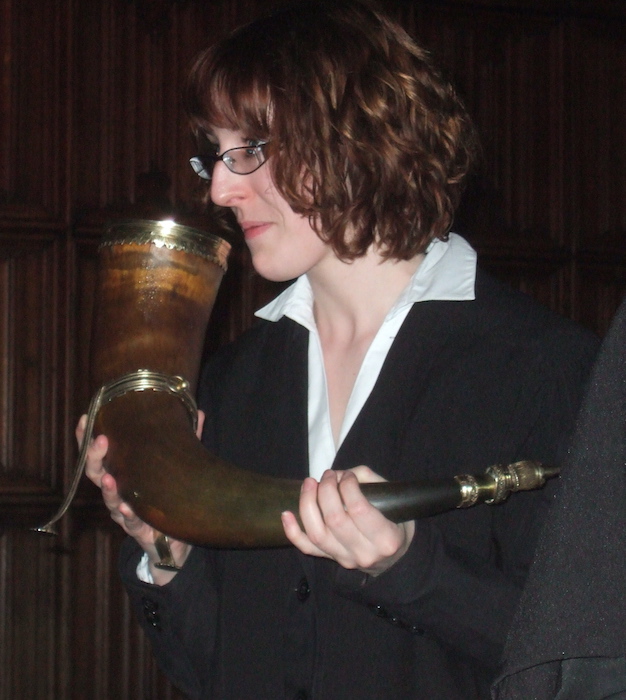
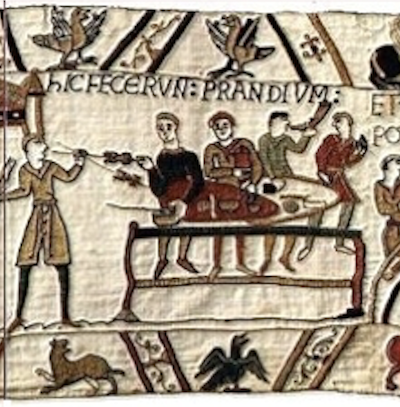



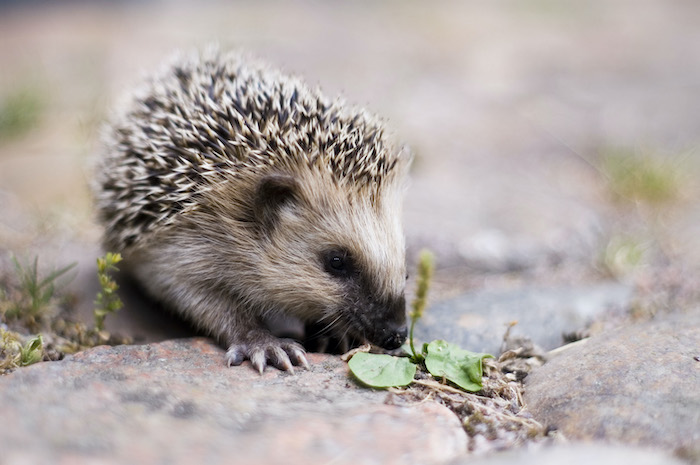
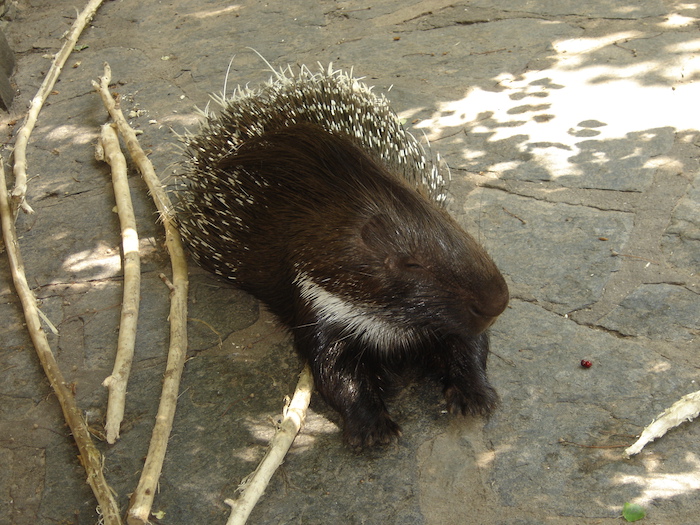
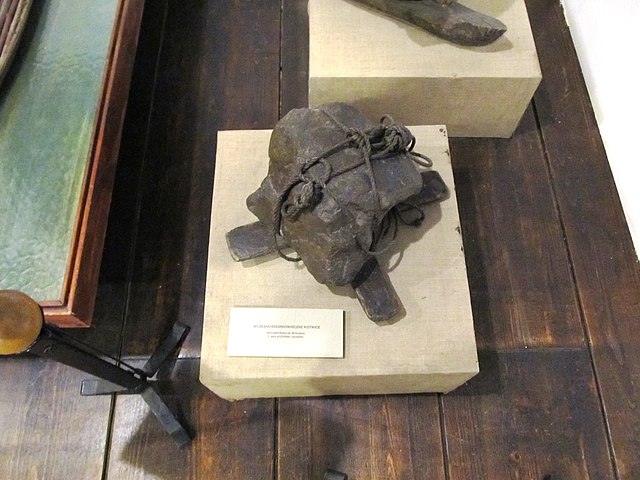
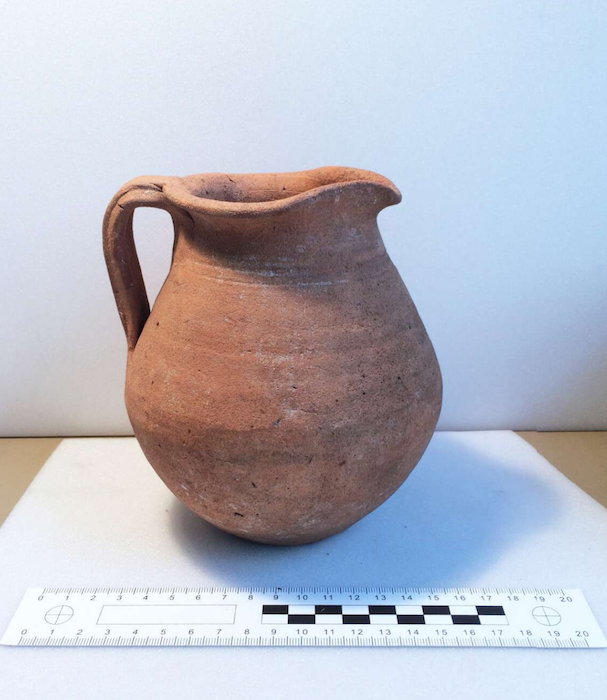
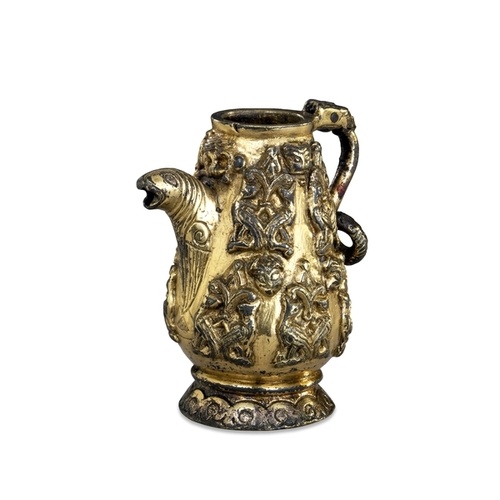
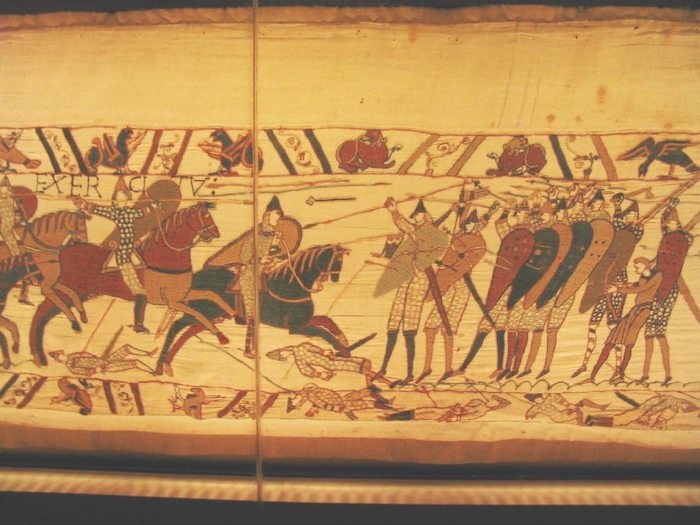
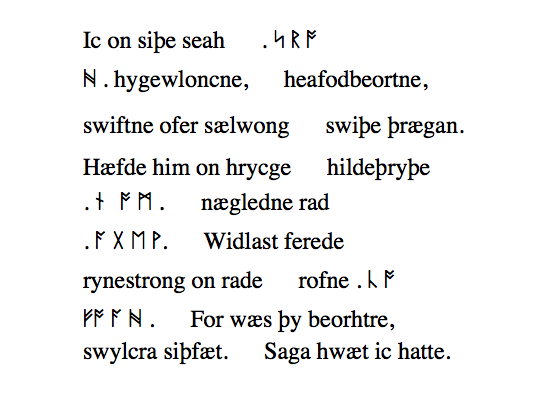

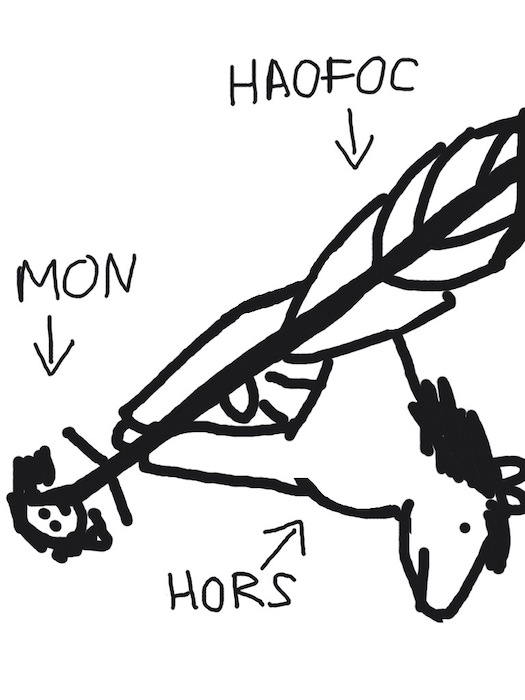

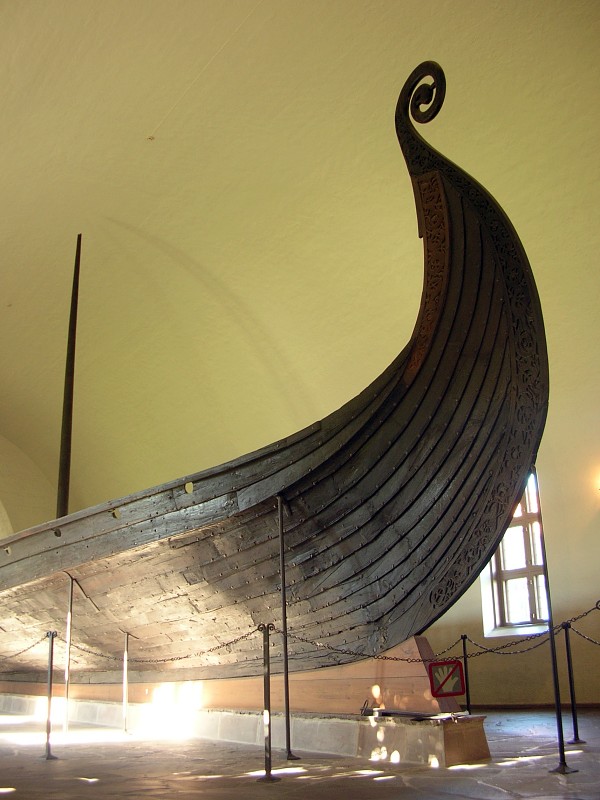



Commentary for Exeter Riddle 11
MEGANCAVELL
Date: Mon 12 Aug 2013Matching Riddle: Exeter Riddle 11
That’s right, folks, it’s the one you’ve been waiting for. Were you starting to worry that popular conceptions of early medieval England were all made up? Well, here comes the alcohol-riddle (and not the only one at that!), to make things right again. Of course, this is not a carousing drinking party of early medieval boisterousness, but quite a stern look at the effects of too much wine on one’s table manners and mortal soul. That is, of course, if we accept the solution Wine (OE Win) or Cup/Vessel of Wine (OE Winfæt), which most scholars do. Some, however, prefer the solutions Night, Gold and Phallus. I’m going to leave that last one to your imaginations, but will say that both Night and Gold have a little something going for them.
Much of the difficulty in choosing between Night, Gold and Wine lies in the translation of the word, hasofag. In fact, both parts of this unique compound have quite a few meanings. To start with the second element, fah can mean "hostile" or even "foe," as well as "variegated," "discoloured," "bright" or "adorned." I’ve chosen to translate it as "stained," hoping to get across both the sense of colour and bad behaviour. The first element, hasu, is also tricky to translate. It can mean "grey," "ash-coloured" or "tawny". But how can it be both dark/grey and yellowy-brown?, you might ask. The simple answer is that early medieval folks didn’t think of colours in quite the same way that we do. The slightly-more-complicated answer is that, while modern colour theory is more interested in identifying different hues, the early medieval English tended to differentiate based on brightness. I guess if most of your possessions are a dull brownish-grey, the bright glinting of a sword would be far more interesting than that fact that it’s a similar colour (in our sense of the word). Because of the complexities of translating Old English colours into Modern English ones, we can similarly argue that read doesn’t necessarily mean what we think of as "red." And so the first few lines of the riddle can be said to represent some sort of dark thing that has other, shinier things on it! Stars on the face of the night sky? Or light glinting off gold? (gold and read are a common pair in Old English poetry) Or the glistening of wine in a glass? These are all decent options.
The next few lines, then, go on to talk about the silly people who get all turned around and misled by whatever our riddle-object is. Night would, of course, make sense here, but it seems a bit obvious. Early medieval poets like metaphors, so a riddle about people who actually go out and get lost may have less going for it. Gold (like Wine) works, though. Both hoarding and drinking excessively are, after all, clearly no-no’s according to the church. There is, of course, another hoard mentioned in the last two lines, although, again, hord could be translated a number of ways, including as just "treasure." The treasure raised on high, then, may be the riddle-object, i.e. a glass of wine or a piece of gold (though I think it makes more sense to raise up a glass than a piece of gold…unless you’re Gollum). But this may also be a reference to a metaphorical hoard: the soul. Old English poetry often describes the body as a kind of fancy treasure-chest for storing the spirit. According to this metaphorical reading, the raising up bit is of course death, at which point the repentant soul hopes to go to heaven.
Gold nuggets! Image from Wikimedia Commons (public domain).
So, the wordplay-ish reference to raising things on high has me leaning toward Wine now, over Gold. Not literally. And there are a few other parts of the poem that imply this is the right direction to take. One is the reference to the owner of the riddle-object being mode bestolene (robbed of reason). The deprivation of sense associated with drinking is also mentioned in the equal-parts-awesome-and-gross Old English Judith. This poem tells the story of a woman who chops off the head of her invading enemy, Holofernes, when he’s drunk. Early on in the poem, we hear: Gefeol ða wine swa druncen / se rica on his reste middan, swa he nyste ræda nanne / on gewitlocan (67b-9a) (Then the powerful one fell in the middle of his bed, so drunk from wine that he did not know any reason in his mind). Although these poems don’t share the same words in Old English, they certainly share a similar sense: drinking is bad…it causes you to pass out and/or do stupid things.
Finally, the clincher for the Wine solution, as far as I’m concerned, is the very last line of the poem, gif hi unrædes ær ne geswicaþ. This line is repeated almost word for word at the end of (SPOILER ALERT) Riddle 27, which is commonly solved as Mead. I should also say that the line has close approximations in Juliana, line 120 (gif þu unrædes ær ne geswicest) and Elene, line 516 (ond þæs unrihtes eft geswicaþ), which are more interested in blasphemy than alcohol…but still.
I’m feeling quite thirsty now, so I’m going to leave you there.
Red, red wine. In a non-medieval glass. Obv. Image (by André Karwath) from Wikimedia Commons (licence: CC BY-SA 3.0).
Related Posts:
Commentary for Exeter Riddle 27